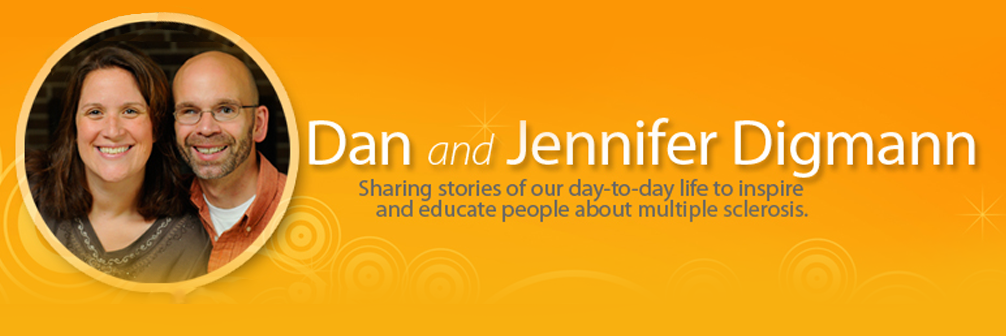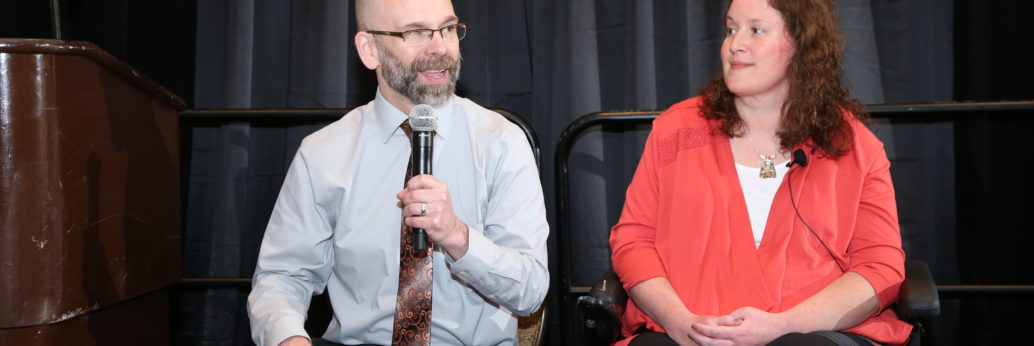As Jennifer is back in our Springsteen room developing the PowerPoint for her online class group assignment, I’m here at the dining room table finalizing a continuing education project of my own.
She’s closing in on earning her Master of Arts – or M.A. – degree in Humanities.
As for me, I’d like to think I’m in the middle of an essay for my M.S. – as in Multiple Sclerosis (rather than Master of Science) – program.
The reality is, she and I both already have our M.S. degrees. She earned hers in 1997, I earned mine in 2000.
I spend my workdays at Central Michigan University as the assistant director of creative services/editorial in University Communications. I concentrate on writing, reading and marketing stories related to higher education.
Acronyms are part of my everyday vocabulary. The most common include:
• B.A. (as in the undergraduate Bachelor of Arts degree)
• ORSP (as in CMU’s Office of Research and Sponsored Programs)
• Ph.D. (as in the Doctor of Philosophy degree held by the university’s respected faculty members)
• MAC (as in the Mid-American Conference in which CMU’s Athletics teams compete)
• M.D. (as in the degree that will be awarded through CMU’s new College of Medicine)
Interesting to note, though, that B.S. actually has two different meanings depending on the day. For the sake of higher education, it’s the undergraduate Bachelor of Science degree. For those of us living with M.S., it’s something we deal with everyday.
In the academic world, reference to the highest degree after a person’s name – such as John Smith, Ph.D. – demonstrates the work they’ve painstakingly invested in their education of choice. It also conveys the deep knowledge they gained in the process.
I applaud their efforts and humbly respect all their qualifications.
Needless to say, I smile each time I encounter reference to the M.S. degree and can’t help but think I should be able to use that after my name too. So should Jennifer and the more than 400,000 other Americans living with this disease of the central nervous system.
In our everyday world, reference to this chronic illness after our names – such as Dan Digmann, M.S. – would demonstrate the work we’ve painfully invested in our forced education. It also would recognize the admirable sense of personal determination we have discovered through the process of living with this disease.
I applaud all of our efforts and celebrate our abilities to rise above the adversity we face.
The parallels between a higher education degree program and living with Multiple Sclerosis are many. In the most elementary terms, we must look no further than the structure of how the academic programs are offered.
Most programs include required core courses that provide a fundamental background of the academic major or area of interest. Once the core courses are mastered, a student chooses electives that focus on a specific concentration.
For example, an undergraduate biology major includes core courses such as concepts of biology, general botany, genetics and microbiology. Electives then include courses that help the student pursue various careers, such as a high school physics teacher or a research biologist.
Likewise, people with M.S. are quickly thrown into a series of core courses that provide required knowledge of the disease. We first learn all about the inner workings of the central nervous system, expand our vocabulary to confidently use words such as “exacerbation” and “myelin,” and develop an understanding of the medicines used to slow the progression of our disease.
Then, we expand our knowledge depending on the course our disease takes. For example, as a person with relapsing-remitting M.S. I have become well versed in my understanding of foot drop and CCSVI. And through her secondary-progressive form of the disease Jennifer has had to concentrate more on adaptive equipment and related conditions such as trigeminal neuralgia.
With all the course foundations and continuing education requirements those of us with M.S. engage in, we’ve more than eared the right to include the acronym after our names.
But all things being equal, this is a program I think we all wish we could quit taking.





Here’s the degree I want–B.M.S. as in
Beat Multiple Sclerosis
I’m so glad that I completed my MA prior to my MS! Since I wanted to get it finished quickly, I doubled my course load. So I worked full time teaching, kept house, raised kids, cared for a sick parent, and took classes. Then I moved into the doctoral program when MS took over. Now? I couldn’t even contemplate how I would manage! Good luck to both of you!
Peace,
Muff
Many of us living with MS are given the third degree. It not only means that we are smarter, it means that we are stronger and more resilient. It means that we have learned many lessons and as a result of what we have learned, are more grateful for what we have.
I think that the 2 of you may be the most educated people I know!
Michael
My most cherished degree is my M.R.S. 🙂